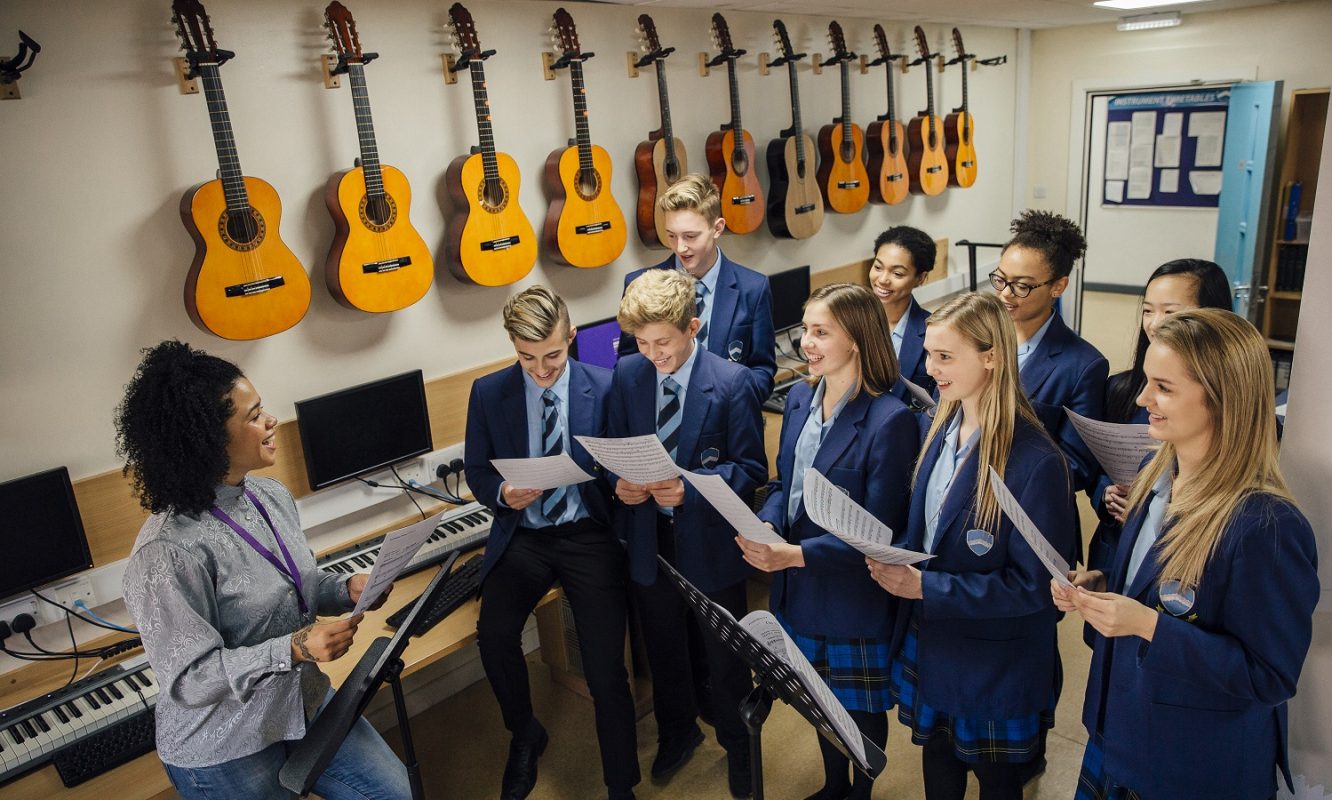Advice For Schools, Music
7 Top Tips For Subject Leadership in Music
Music is one of the few subjects that combines the creative, physical, intellectual and emotional parts of the brain for learners.
It embeds the behaviours needed for young people to take their place in an ever-changing world.
“Music gives soul to the universe, wings to the mind, flight to the imagination and life to everything” – Plato
As a teacher, music can be an incredibly rewarding subject to lead and here are my top 7 tips for leading music across the curriculum:
1. Curriculum Intent
Ensure that as the subject lead you are aware of the curriculum vision from senior leaders – it’s crucial that there is a whole school understanding.
A possible exercise could be to ask senior leaders and the subject lead to separately write down the curriculum intent for the subject.
Does it match and correlate? Are senior leaders and subject leads both on the same page here?
2. Progression, Progress and Preparation
How do you ensure pupils have the appropriate knowledge and skills to access the next phase of their learning?
How do you develop breadth of experience and depth of learning?
3. Music Offer
Ensure you have clear curriculum maps for the appropriate year groups / phases.
Are you able to talk about what you teach, why you teach it and when you teach it?
You should consider how knowledge, skills and concepts are built over time and this is particularly important in music.
It is crucial to consider how both the school curriculum and extra-curricular activities work together.
I would recommend looking at the DfE National Plan for Music Education and finding out what is available in your area via your music service or music education hub.
4. Timetabled and Happening
A policy or vision doesn’t always ensure something is happening, particularly in a busy school week.
If possible, try and speak to colleagues and also look at other opportunities to enrich the music curriculum offer.
For example, music services and music education hubs will be able to sign-post schools to opportunities, events and high-quality authentic music experiences for pupils.
5. Pupil Voice
Speak to children on a regular basis to check pupils are engaged in their learning and to gather evidence of their understanding in the subject.
6. Strengths and Areas for Development
Consider using a RAG (red/amber/green) rating system to analyse areas which need development.
How you capture this is not important, but it is crucial to identify any actions and how you plan to develop a particular area.
This will help to focus on key priorities for development and show progress over time.
7. Professional Learning
Subject specific CPD is crucial and helps avoid the danger of professional isolation.
How do you access CPD and how regularly?
Also, what impact has this had on both your practice and the practice of your colleagues?
Can you identify what should happen next?
Contact your music service or music education hub to find out what is available in your area.
To find out more about government guidance on curriculum, see the Education Inspection Framework.
More information
At Services For Education we work with individuals and groups of schools and settings to improve policy and ethos, leadership and management and curriculum development. If your school would like some support to review, improve or plan your music provision this year, please do get in touch. Music is such an important part of a child’s education.
You might also be interested in joining us for:
About the Author
Adam Hickman – Deputy Head of Music Service, Services For Education
Adam graduated from Royal Birmingham Conservatoire (formerly Birmingham Conservatoire) in 2008 with a BMus (Hons) degree where he studied classical guitar with Mark Ashford and Mark Eden. Upon graduation, Adam completed a PGCE in Primary Education at Birmingham City University and has since worked as a peripatetic music teacher and is currently Deputy Head of Music Service at Services For Education.
He has also worked as an External Examiner at Royal Birmingham Conservatoire and coordinates and lectures on music education modules at both Birmingham City University and The University of Birmingham. In June 2019, Adam was awarded Honorary Membership of Royal Birmingham Conservatoire in recognition of his work in the field of music education. Adam is active as a conductor and ensemble director through his work with the Birmingham Schools’ Training Guitar Ensemble and the National Youth Guitar Ensemble.


 Lucie Welch – Adviser, Services For Education
Lucie Welch – Adviser, Services For Education Jo Perrin - Interim School Support Lead, Adviser, Services For Education
Jo Perrin - Interim School Support Lead, Adviser, Services For Education


